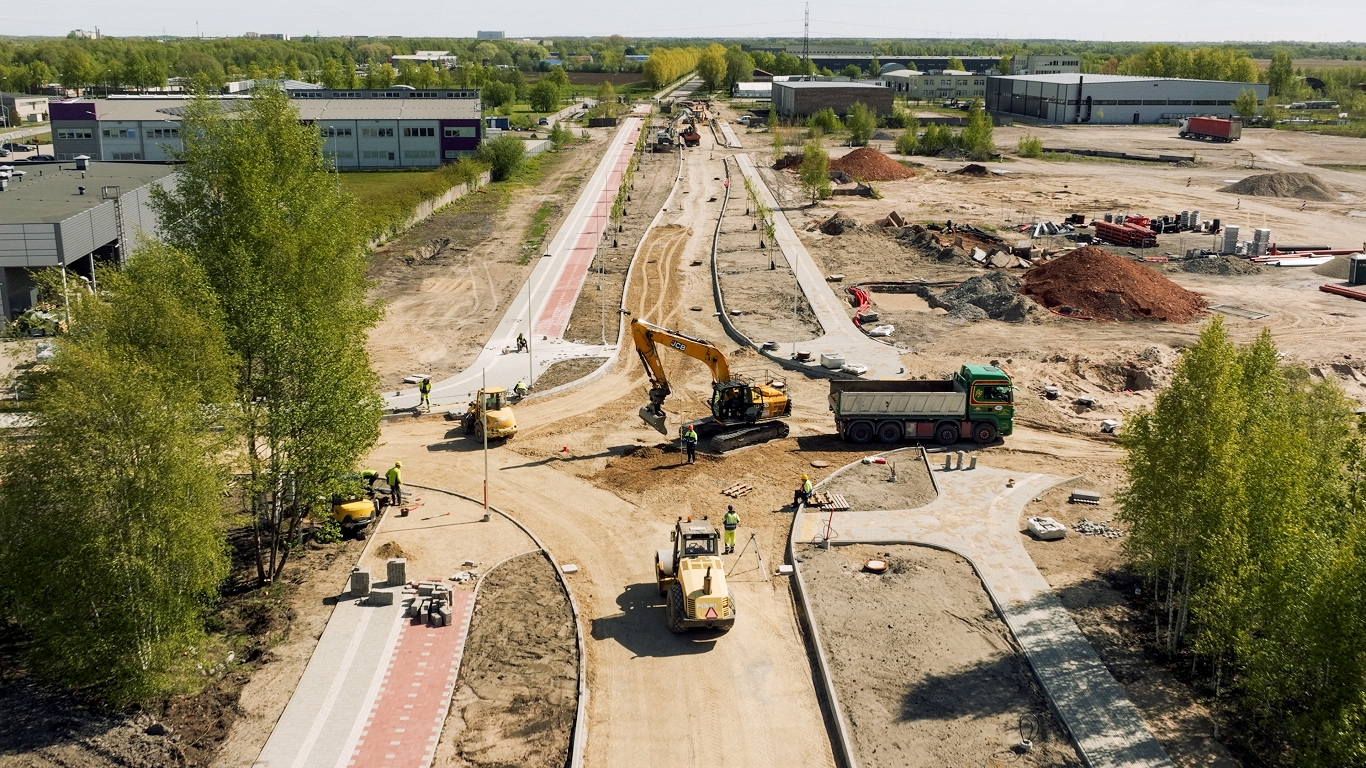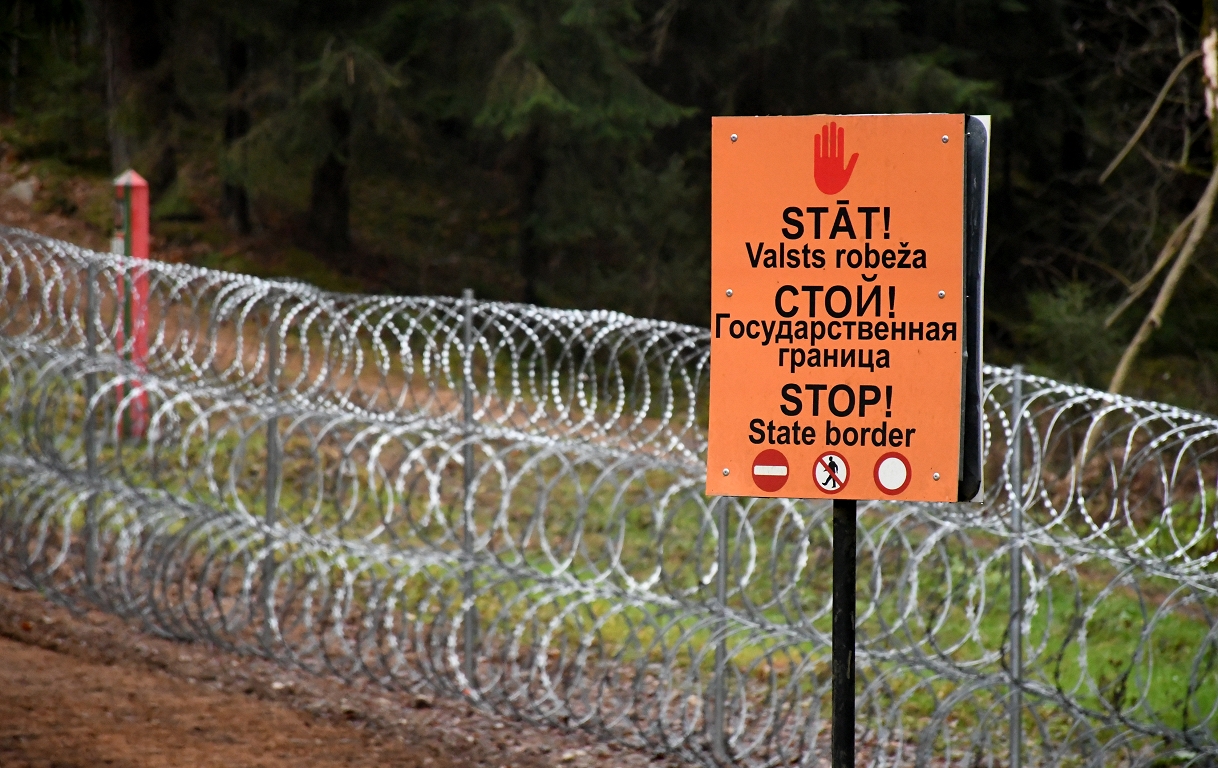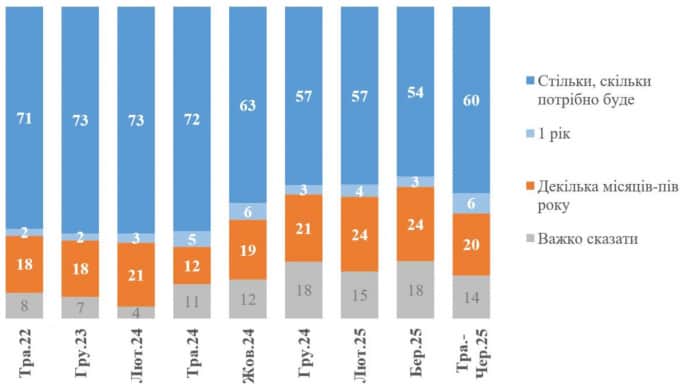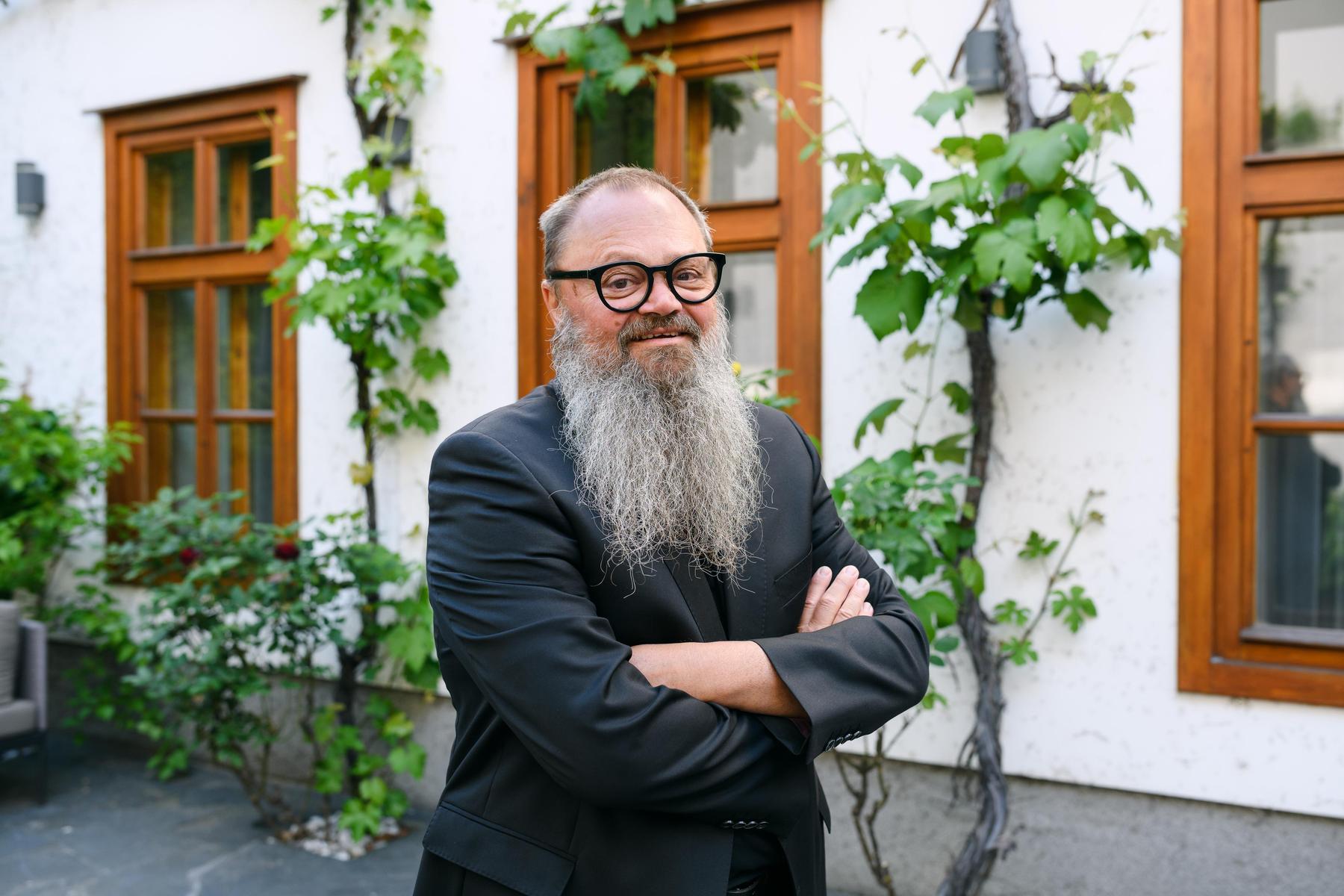Latvia could not buy non -conductable infantry from Poland and Finland or assemble the same / day
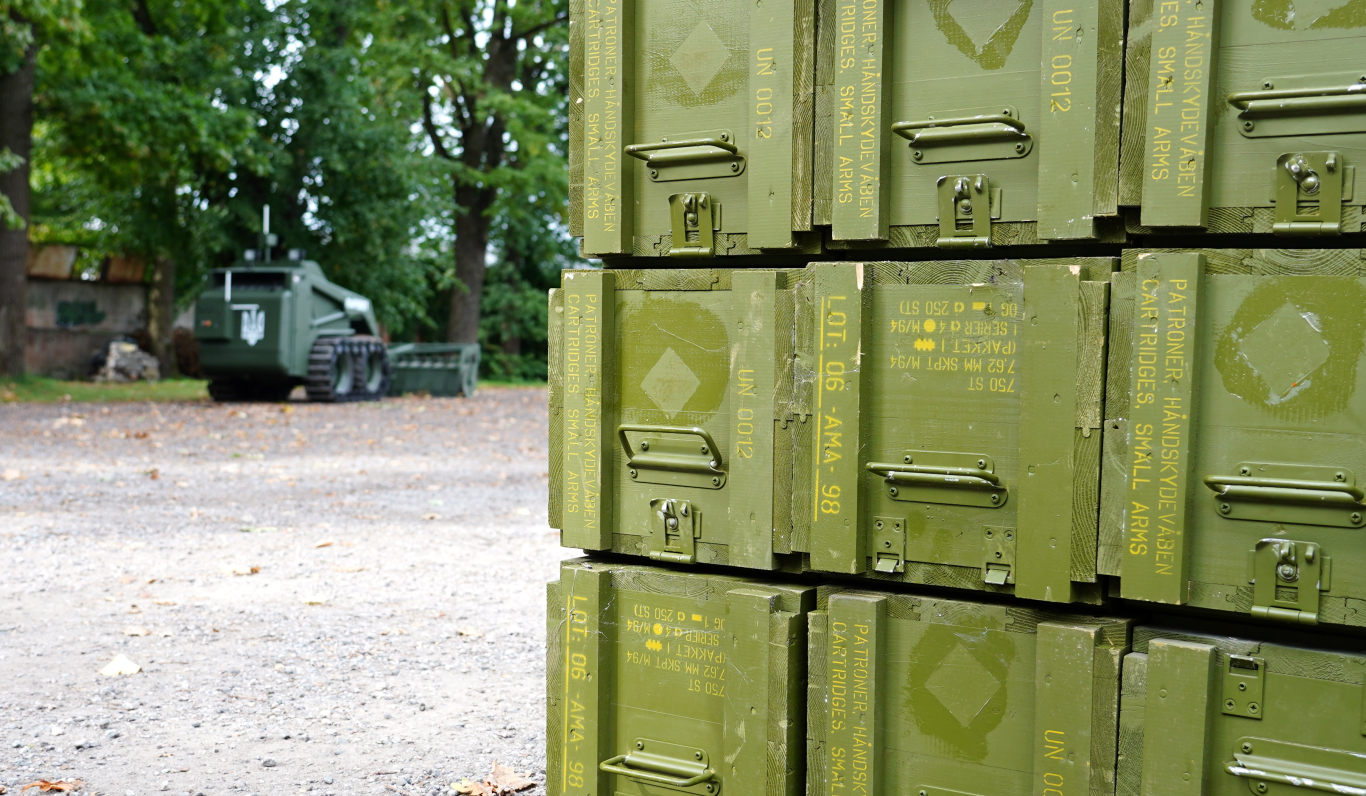
The Foreign Affairs Committee of the Saeima, the Defense, Home Affairs and Corruption Prevention Commission and the National Security Commission today conceptually supported the draft law providing for Latvia’s withdrawal from the Ottawa Convention, which prohibits the use, storage and production of infantry mine.
The bill is being driven by urgency. The Saeima is expected to include the draft law on Thursday’s plenary agenda and the deadline for submitting proposals to the second reading will be five days.
Following the commissions, the minister told reporters that the decision of the Saeima should first wait and then be able to start the process of purchasing non -conducted infantry mines. The Defense Department is already buying guided infantry mines and anti -tank mines.
In terms of purchase options, Sprud said Poland and Finland were endowed with such a resource. The ministry will also consider the production of such mine in Latvia. The ministry will be supplied in the existing anti -tank and guided infantry mine, which should be partially assembled or produced in Latvia.
Mine production as such is not the most difficult thing, as only a few ingredients are needed, but the most important and challenging part is explosives, which are currently in high demand. Such explosives are not produced in Latvia.
« If we wanted to make mines or assemble, of course we should buy these explosives, » said Sprud.
The explosive industry is known to be Poland and specific plans for Finland as well. « Latvia also has plans, but it would, of course, take some time before we can potentially produce such explosives ourselves, » the minister admitted.
Therefore, at the moment, this would be the purchase of such explosives and then the potential assembly in Latvia, both for anti -tank mines, guided infantry mines, and potentially non -visible infantry mines, Spruds explained.
At the same time, Sprud recalled that countries such as the US, Israel and India, which are not member countries of the Ottawa Convention, have pledged not to deliver these mines to other countries. Therefore, a regional approach from mine and explosive supplies is important for Latvia.
The Minister also emphasized that before the Baltic States, Poland and Finnish parliaments had no final decision, the region’s countries are not in a hurry to make formal negotiations and make formal plans for mine. At the time of parliaments, it would be correct to start the process of buying mine. Currently, there were only informal talks between countries.
Evaluating the plan to leave the Ottawa Convention announced on Tuesday, Sprud said Finland had gone in some way its way to a sufficiently long -lasting military evaluation. At the same time, Sprud is convinced that this is both a military issue in all countries and a strategically political issue.
« It was first and foremost a Finnish sovereign decision that strengthens the regional approach as a whole. In any case, it has a positive contribution to the regional strategically agreed that there are five countries bordering on aggressor Russia, and all these countries need to strengthen the border, » the minister emphasized.
Sprud pointed out that one country does not make sense to announce withdrawal from the Convention, raising questions about how to buy these mines. « There are five countries in the region that have the ability to produce these mines, so Finland’s withdrawal from the Convention from our perspective reinforces the validity of the regional approach, » Sprud emphasized.
When it comes to the potential funding for the purchase of non -conducting infantry mines, the minister said that the budget currently marks funding for the purchase of guided infantry mine and anti -tank mine. At the same time, the military have acknowledged that other areas are more priority and have a total of 26 abilities that need to be developed in the existing budget. Explosives and mines are one of the elements.
If Latvia withdraws from the Convention, the Defense Department will begin more specific planning regarding the attraction of financial resources, which also means « known redirect ». At the same time, the government has decided to increase the costs of the defense department, reaching 5% of gross domestic product in the near future. If such an indicator were to be achieved, some funding will obviously have to be planned for the purchase of non -conducted infantry, the minister said.
The National Armed Forces Joint Headquarters representative, Colonel Raivis Melnis, admitted to the commission in the joint session that the non -conductable infantry mines would be an additional element in protecting the country and served as part of the overall defense system, formed by artillery systems, rifle weapons, anti -aircraft weapons, anti -tank weapons and other arms.
« The mines of anti -legged people prevent the opponent’s infantry from coming to where we do not want to see them. It is the infantry that provides the end of the end of the area. We then, with such tools, would deny them, of course, using artillery, mortars and all other weapons, » the Colonel said.
At the same time, Melnis said that anti -footage mines are not a miracle cure that will do everything in the protection of the country, so different types of weapons are needed.
It has already been reported that Latvia will leave the Synchron with Estonia, Lithuania and Poland from the Convention, previously stated in the Ministry of Foreign Affairs (MFA). Finnish Prime Minister Petri Orpo also announced yesterday that Finland plans to leave the Ottawa Convention.
This Convention was adopted on September 18, 1997, but entered into force in 1999. It has been joined by more than 160 countries around the world, including most Western countries. China, Russia, USA, India and Pakistan have not joined the Convention.
Member States of the Convention shall never use or under any circumstances, not to develop, not to produce, not to produce, or to receive a different way, to store, to preserve, or not to give anyone directly or indirectly.
Similarly, members of the Convention shall undertake not to assist in any way, not support or encourage anyone on actions that any Member State has been prohibited in accordance with the Convention. Each Member State also undertakes to destroy all infantry mines or to ensure their destruction in accordance with the provisions of the Convention.
The moment Latvia’s accession to the Ottawa Convention was decided, there were no military, strategic or security reasons why Latvia has not accompanied, while the security situation in the Baltic region has changed at the moment, the MFA stated.
The ministry notes that, through full -scale aggression against Ukraine, Russia has shown that it does not comply with the territorial boundaries and international law of sovereign states. Therefore, it is important for Latvia to maintain freedom of choice and flexibility to apply various weapon systems and solutions to strengthen discouraging and national protection.
Referring to the war in Ukraine, the ministry points out that non -conductor mine in combination with other mines and arms systems increases the lethality of the Defense Forces by delaying or stopping Russia’s mass movement. The MFA also concludes that in the context of the current regional security situation, the Ottawa Convention restricts the possibilities of Latvia’s defense, completely excluding the use of an effective military protection product – infantry mine.
The MFA has emphasized that Latvia will continue to comply with international obligations, including humanitarian rights, while ensuring its security needs.
The ministry also notes that any possible purchase, placement and use of non -conductor mines will depend on military logic and need, as well as the priorities of the defense capacity and the available funding.


